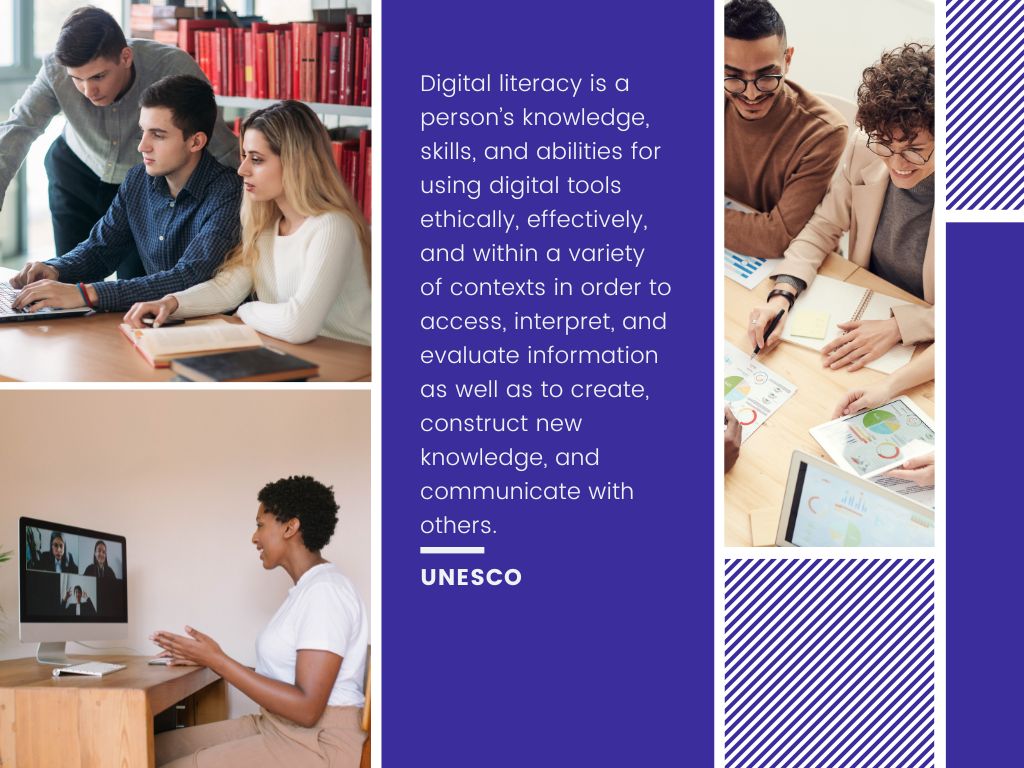Digital Literacy at JIBC – Where We Are and Where We are Headed?
- 2 mins read
With so much happening in the digital learning space you may have missed last month’s official launch of the Digital Learning Strategy for post-secondary institutions across B.C, by the Ministry of Post-Secondary Education and Future Skills (PSFS). The work was sparked by the emergency transition to teaching and learning online during the Covid-19 lockdown. In 2021, work on the strategy was initiated by the Ministry. An Advisory Committee of digital learning experts across the system began development of the strategy to establish strategic priorities for digital learning over the longer term. You can read more about the strategy on the government website, but what brings us to this issue of the CTLI’s Learning Hub is an Appendix to that strategy: The B.C. Post-Secondary Digital Literacy Framework.
You might be wondering: What even is Digital Literacy? Everyone knows how to use the internet right? You can dig into the framework itself for a more detailed definition and check out UNESCO’s explanation as well. But, in short, here it is:

Digital literacy is a person’s knowledge, skills, and abilities for using digital tools ethically, effectively, and within a variety of contexts in order to access, interpret, and evaluate information as well as to create, construct new knowledge, and communicate with others.
UNESCO
What stands out, in this definition, is the use of digital tools ‘ethically’ as well as how we use these tools to ‘interpret’ information. In a time where mis and disinformation bombards anyone in the digital space, we have a responsibility, as educators and as an institution, to ensure that faculty, staff, and students have the knowledge and tools they need to be both safe and successful in digital spaces. If we are to look at the ethical use of these tools we have to look at what we are using at JIBC, who is behind these tools, and recognize that educational technology is big business that often leaves the real needs of students and educators out, or can even cause harm. I encourage you to read a recent blogpost from Anne-Marie Scott on the procurement of ed tech, which is an entire other topic, but I can’t help but think about its connection to digital literacy in our context.
Institutions are being encouraged to develop policies and tools to support Digital Literacy tailored to the needs of the institution. So, in a recent presentation to our JIBC academic leaders, I spent a little time looking at what we already have in place to support Digital Literacy and what we could do next.
Here are some things that we, at the JIBC, are doing:
- Microcredential in Cybersecurity
- E-portfolios and PebblePad (sample e-portfolio)
- Collaborating with BCNet on software and reducing costs
- Collaborating and contributing to Open Education initiatives
We are just getting acquainted with the Digital Literacy Framework and how it might be woven into the fabric of what we do at JIBC. The Ministry is currently working on implementation plans with a steering committee so there is certainly more to come on this. In CTLI, we continue to stay connected to our colleagues across the Province through networks like the Educational Technology Users Group (ETUG), British Columbia Teaching & Learning Council (BCTLC) and BCcampus, to share and learn about what others are doing. For now, this is where most institutions seem to be – beginning the exploration and consideration of how we can better support our faculty and students in the digital environment we work and learn in.
Want to chat more about digital literacy at the JIBC? Reach out to Melanie!





